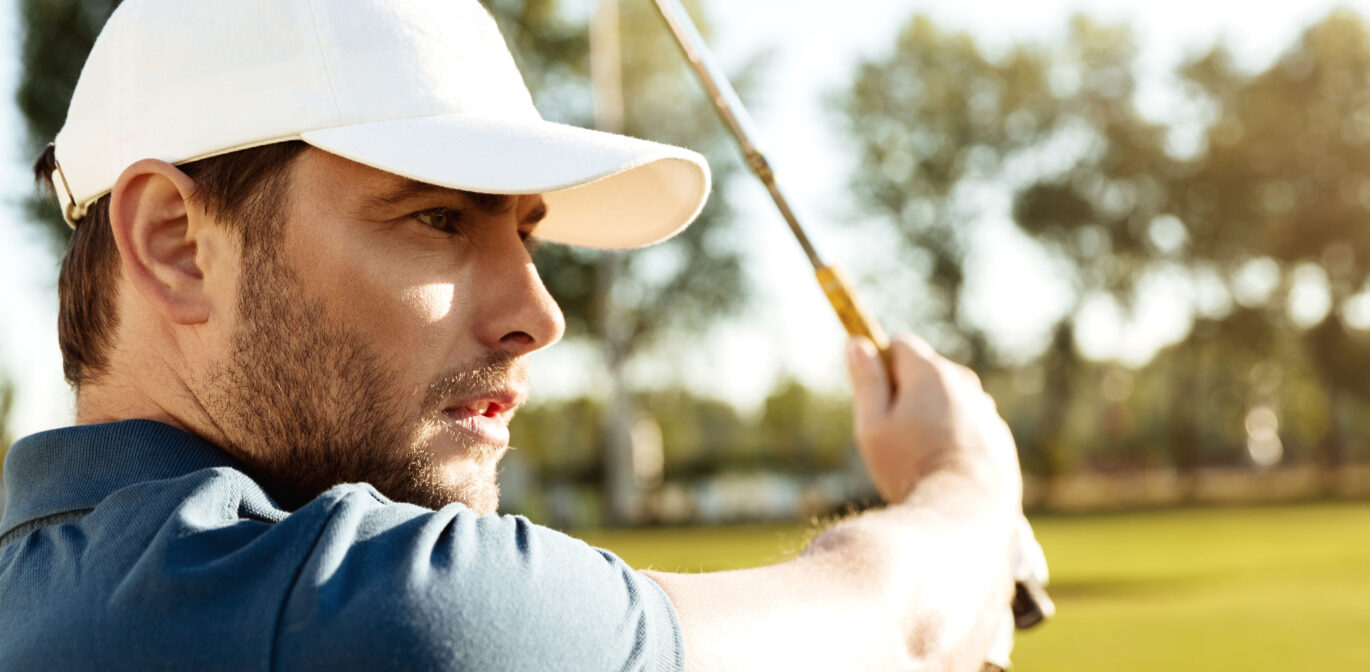You had plenty of time to engage your golf brain during your time on the driving range. You practiced your pre-shot routine by going through a good preparation process. Yet your fundamentals, visualization, and shot selection suddenly get lost in the pressure to perform. The first thing that gets kicked to the curb is tempo as your brain tightens up all your muscles and exaggerates your swing speed. Think about it, many times you are with people that just signed up for your group tee time, or worse you are playing with clients for the first time and you want to be half way decent and avoid embarrassing yourself.
To prevent unnecessary stress, go through your mental checklist and make sure you have everything ready the evening before a competition. Feeling unprepared or forgetting something can throw that golf brain into a state of pure chaos.
THE CONNER FIX
Patience and Time
Golf requires your mind and body to practice patience. Malcolm Gladwell, staff writer of the New York Times and author of Tipping Point and Blink was quoted as saying; “Practice isn’t the thing you do once your good. It’s the thing that makes you good.” The acquisition of patience requires time. Slow down the brain to slow down the swing and stay more relaxed instead of choking up on your golf grip and swinging too fast. Practice focusing on the ball strike and connect with the each shot you are about to hit with a relaxed sensibility and confidence. In the case of Keegan Bradley, he focuses on his facial muscles. Bradley felt if he could get his mouth to relax, his whole body would relax.
I had one client identify his swing fault was his lack of focus and fatigue. Hey I get it, we live in a complex busy work – home environment and between long hours, family, late dinners, and little sleep these things influence our golf game. In fact, there are a myriad of factors that influence your game but they all inevitably lead to poor performance. Try thinking of your golf game as your favorite episode of Seinfeld, Saturday Night Live, or The Good Place and get that brain to laugh before you swing. The serotonin you create will help you laugh your way to a better round of golf.
Before a competition, don’t think about changing anything you would normally do before a round. Connect to your senses, go through your same warm-up and get to the course a little early to make sure everything feels good.
GOLF TIPS
Today’s golfer understands the proper mechanics of the swing emphasizing a natural athletic movement pattern. And the brain can visualize success by imagining you shot a great round on the course as you feel each shot.
Emotional Intelligence (EQ)
The better you can suppress your emotions the better you’ll play. Golf is like riding a roller coaster, if you don’t learn how to compartmentalize your feelings. Get rid of any “stinken thinken” regarding what might happen if you do or don’t keep up. Relax before you take that swing. If you don’t let go of your emotional energy the hormone Cortisol surges in your brain under pressure and will work against your golf skills. Simply put, when you are on the golf course your senses experience all kinds of feelings and that information goes into your brain for rational thought and consideration. But when you hit a bad shot the emotional part of your brain called the amygdala tends to act quickly and instinctively, triggering life saving responses as well as unwanted emotional responses allowing you to really mess your game up. Stop all peripheral thoughts, teach your brain how to ignore these derailing side thoughts and get back to the job of connecting to one shot at a time.
When you feel those emotions sliding into your golf game create a mental space where you can go allowing your golf brain to switch off and recover before the next shot. Don’t focus on everyone’s shots or compare your performance to theirs. Instead once you take that shot, focus on the sky, the air, and the beauty of the course, anything other than talking about golf, family or what you are doing later. Be present, golf in the “now.” Each shot previously taken is in the past and can’t be altered or fixed.
Remember you’ve done the practice and you know how to hit each shot. Relax your facial muscles, let your body stay loose, and never consciously think about your swing while swinging. Never! Be positive, every shot is an opportunity to excel and take your game forward. No matter what is happening get rid of any mental judgement, stop all emotional thoughts, and be present.
Now go our there and play!

